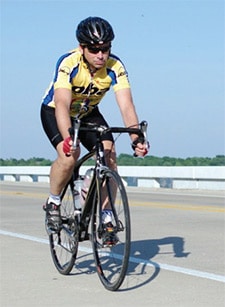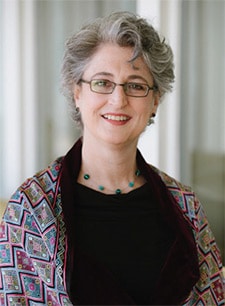PUBLISHED: 18th April 2014

In each issue, we'll invite a FORCE member to share an insightful perspective, a valuable experience, or a touching story to help others who are dealing with issues of hereditary breast and ovarian cancer
Participating in Pancreatic Cancer Clinical Trials
by David Dessert
I am a pancreatic cancer survivor with a BRCA2 deleterious mutation. Although chemotherapy followed by surgery were effective for me, statistics for pancreatic cancer are grim, showing a 75% cancer recurrence rate after surgery.

No reliable pancreatic cancer treatments exist, so I researched clinical trials — every treatment available today is thanks to previous cancer patients who went through clinical trials. My oncologists informed me only about trials at their own hospitals. Expanding my options, I reviewed all pancreatic-specific trials, focusing on PARP inhibitors, platinum-based treatments, vaccines, and others. I found research papers about my specific BRCA2 mutation and contacted the authors to volunteer my participation in research. I felt that I was more likely to get results by bringing my list of 8-10 specific trial summaries to my 20-minute appointment with my busy oncologist.
I've contributed to multiple studies. Some are hard to find, but enrollment in others is as easy as filling out a questionnaire or submitting blood/saliva samples. Before hospital visits, I search online for press releases for relevant studies. I've also encouraged my relatives to volunteer, as they and future generations may directly benefit.
I'm getting great care at MD Anderson, and joining a Johns Hopkins vaccine clinical trial has improved my odds and made me a valuable research subject. Going forward, I now have two outstanding institutions that are familiar with my case to advise me.
Fighting Breast and Ovarian Cancer Through Research:
by Carey Fitzmaurice
I was diagnosed with Stage IIIC ovarian cancer in 2006 at the age of 37. I completed my initial course of chemotherapy and enjoyed almost a year of remission. When the cancer returned, my gynecological oncologist thought that Avastin showed promise to help me. I did not hesitate to enroll in the trial using it since that was the only way to get this drug. Unfortunately, I was diagnosed with Stage 2b breast cancer after only a few months on the trial, so I had to stop and have surgery for that. Knowing I was positive for a BRCA mutation, I tried to schedule a prophylactic mastectomy but the ovarian cancer treatment made that difficult.
The second trial I joined was for PARP inhibitors. Participants were BRCA+ with recurrent ovarian cancer. I participated for 15 months and it worked very well. I hope that PARP inhibitors can be brought to market soon.

While on both trials I felt as if I was getting the red carpet treatment. True, there were more blood draws and other tests, but fewer lines to wait in while getting them! Trial participants have a research nurse to call on for any questions and all aspects of care are integrated.
While on both trials I felt as if I was getting the red carpet treatment. True, there were more blood draws and other tests, but fewer lines to wait in while getting them! Trial participants have a research nurse to call on for any questions and all aspects of care are integrated.
Carey Fitzmaurice was diagnosed with Stage IIIC ovarian cancer in 2006 and Stage 2b breast cancer in 2008. She is the founder and president of Teal Toes, an organization created to raise awareness of ovarian cancer.